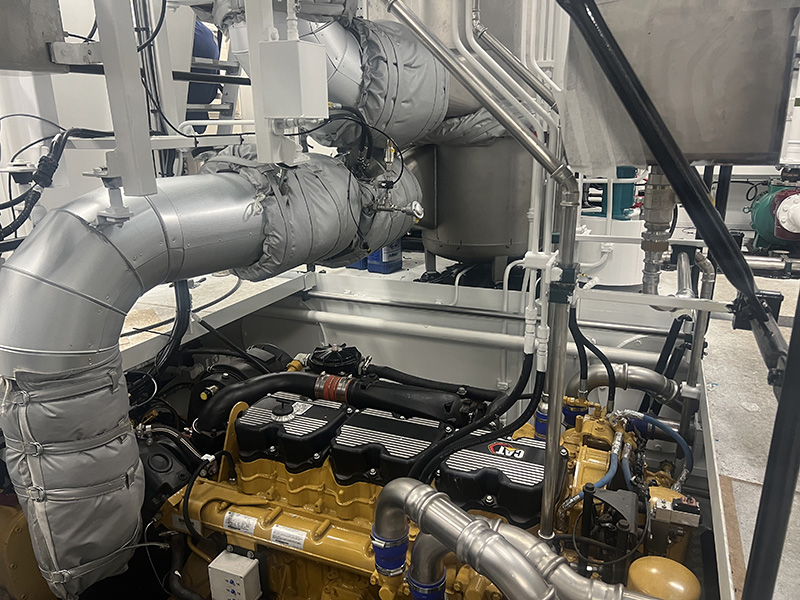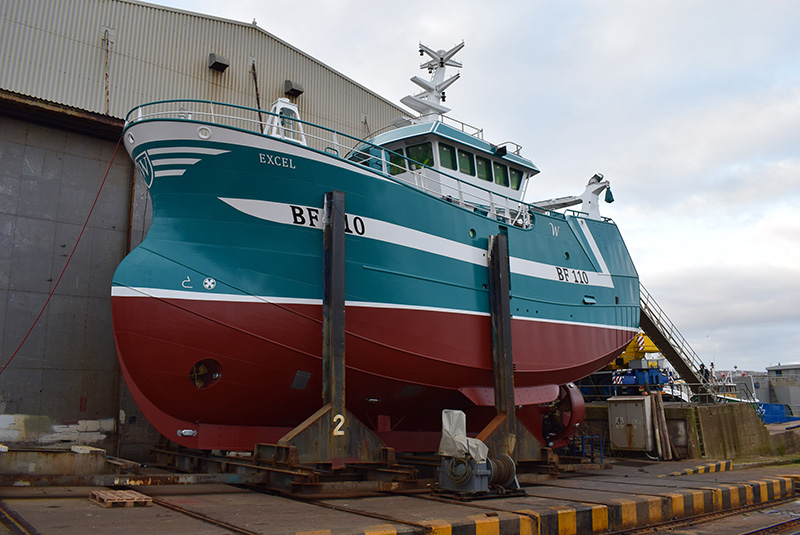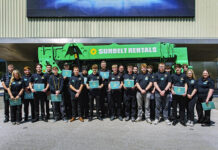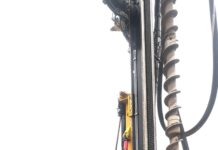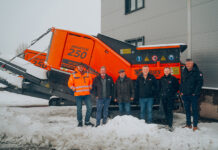FINNING has revealed it has engineered the Cat C18 marine propulsion engine to power the UK’s first new build fishing vessels which meet Tier III emissions standards.
To ensure the preferred engine model could be used on two new trawlers being built by Macduff Shipyards to Tier III standards, Finning carried out testing to create a solution that meets the new legislative requirements.
Working with a third-party supplier, Finning revealed the Cat engine was paired with a ‘high efficiency’ selective catalytic reduction (SCR) system. Having verified the performance of the engine, Finning can now provide Tier III compliance for Cat C18 IMO Tier II engines paired with specifically matched SCR systems.
Macduff Shipyard’s Zenith BF 106 and Excel BF110 fishing vessels will be the first new vessels in the UK to be completed in line with the new environmental standard that aims to cut nitrogen oxide (NOx) emissions by a further 75% from Tier II standards.
Under Tier III all new build vessels with a keel laying date from 1st January 2021 that will operate in an Emission Controlled Area (ECA), including the North Sea, with an engine output of 130bkW or higher, need to meet the standards.
The Cat C18 engine was certified to Tier II standards. To meet Tier III requirements, the engine required the addition of an SCR system to reduce NOx limits to between 2 and 3.4 g/kWh. Finning added that it will also provide an identical package for another new vessel – currently identified as Yard 705.
Collaborating with SCR supplier Xeamos, the marine power solutions team at Finning carried out in-house testing witnessed and certified by DNV to guarantee Tier III compliance, with the results recording NOx emissions levels ‘significantly below’ the legal requirements.
As a result, Finning has now secured parent engine certification from DNV that allows it to pair Cat C18 IMO Tier II engines with SCR systems to certify the package meets Tier III regulations.
Gordon Dalrymple, marine new equipment sales manager at Finning, said, “Finning is privileged to have been involved in completing this UK fishing industry first, and supporting Macduff Shipyards, who continue to be a major client at the forefront of vessel design and development. The Cat C18 is an excellent choice of engine and through the work we have done to make it compliant with the IMO Tier III emissions it can continue to power vessels that need to meet the reduced emissions levels.
“Finding solutions such as this – and having a certified testing system in place – is a solid foundation to ensure trusted and accessible power solutions can be used in both new vessels, and retrofitted to existing vessels where needed, to allow them to be used in ECAs. As the North Sea now falls within this, it will have a greater impact on the UK marine industry and the power solutions used in new vessels in particular.”
Matthew Watt, manager at Macduff Shipyards, added, “When the IMO Tier III regulations came into force, the shipyard found itself in a difficult position with none of the engines of the size and power that we typically install having a Tier III solution readily available. Finning went above and beyond to explore all options and come up with a great solution that would allow us to build these vessels and ensure that we are meeting all required regulatory standards.
“The ‘Zenith’ and ‘Excel’ will be amongst the first vessels of this size to feature SCR systems. Pairing this with new fuel-efficient hulls and optimised propulsion setups, these vessels have enabled the yard to make a step forward in the transition towards net zero emissions fishing vessels.”




